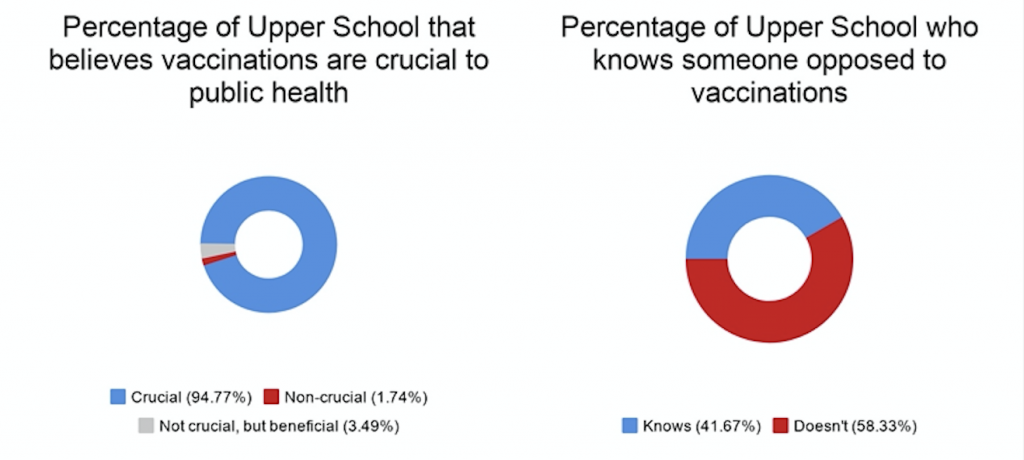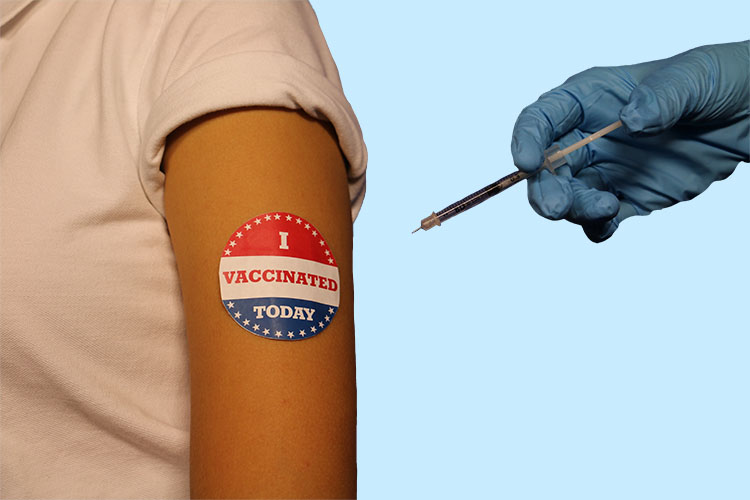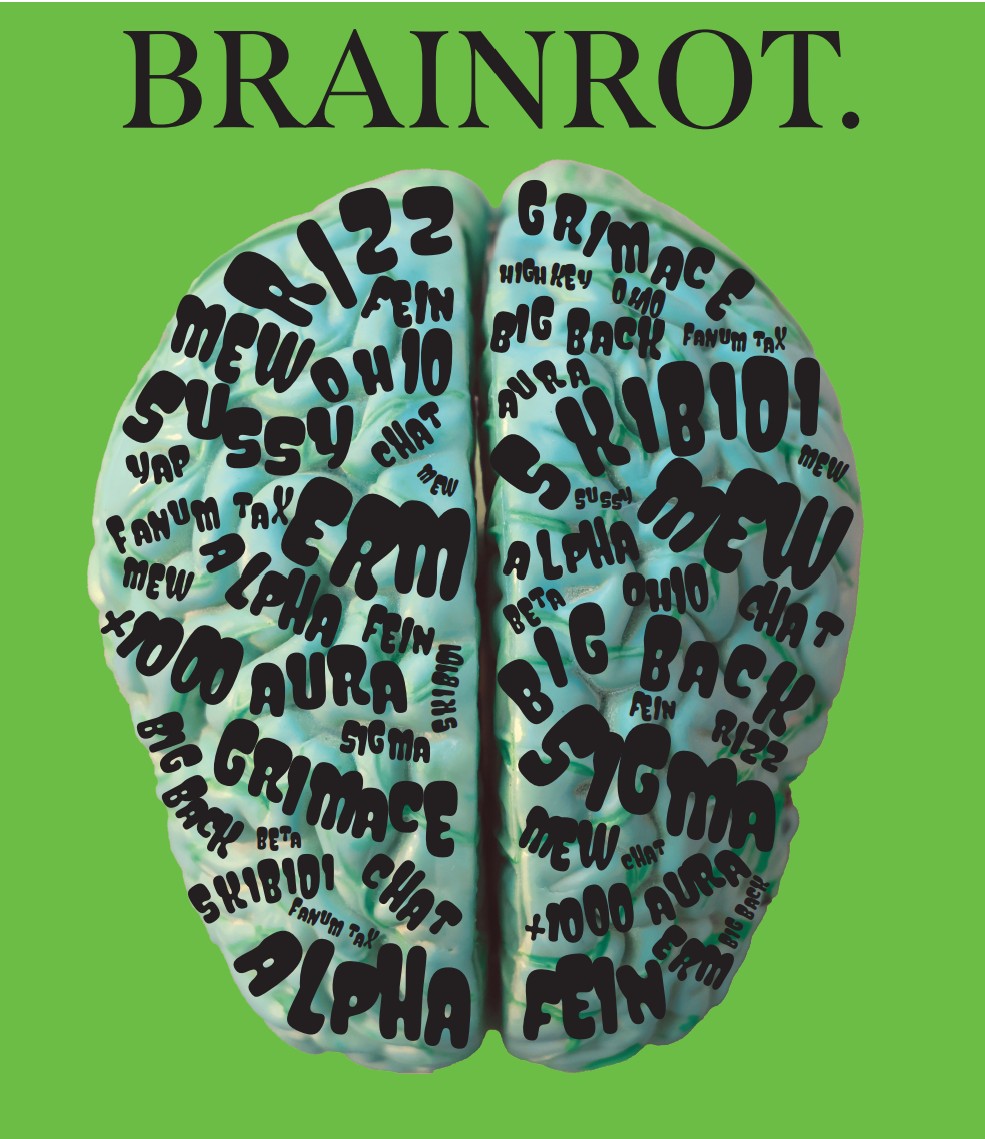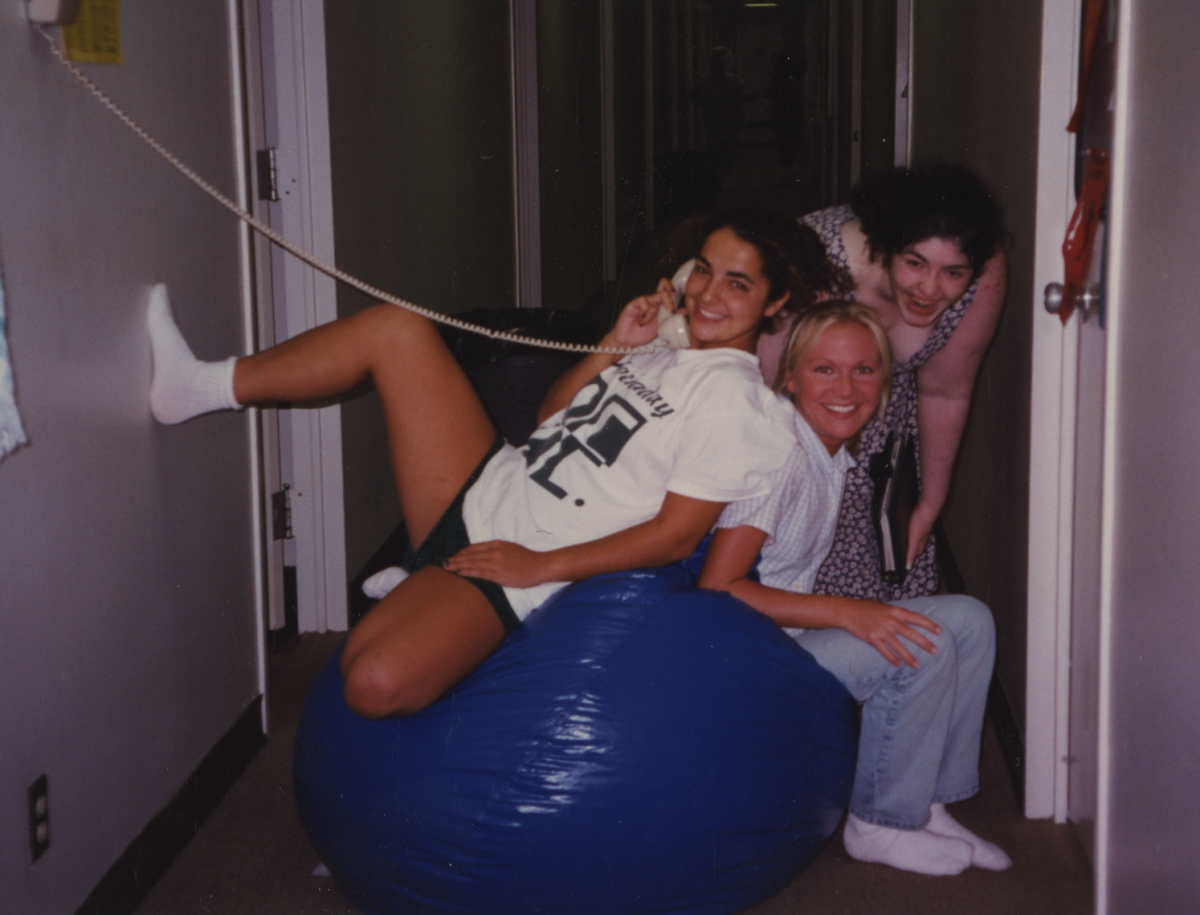Stricken with fear, a young mother rushes into the emergency room. In her arms, she holds her two-year-old son, lying as limp as the teddy bear he clutched a few hours ago. A large rash covers his frail leg. The boy’s blistering fever and unrelenting cough led his mother to simply assume that his symptoms were characteristic of the seasonal flu. What she failed to recognize was that the infant had a life-threatening strain of the measles. The cause: a preschool classmate who carried the fatal disease.
Although the majority of Americans choose to vaccinate their children, the number of “anti-vaxxers,” or people who opt out of the vaccinations due to religious and personal beliefs, continues to grow. Being an “anti-vaxxer” herself, the mother was confident that vaccines did more harm than good. But now, because she neglected to immunize her child, she is faced with the devastating possibility of losing her son forever.
BREAKING DOWN VACCINES
The concept of immunization is not new. Despite the long history of infectious disease within the human race, the first successful vaccination was created only 200 years ago, when Edward Jenner, an English physician and scientist, introduced the smallpox vaccine. After observing that milkmaids who had previously caught cowpox weren’t affected by smallpox, Jenner determined that inoculated cowpox protected against smallpox.
Every fall, millions of children across the United States flock to the doctor to get their vaccinations. How- ever, according to the CDC, many parents do not understand the importance of early protection against serious diseases that have the capability to harm infants. Assistant Secretary for Health Admiral in the U.S. Public Health Service Commissioned Corps Brett Giroir believes that there is a need for higher levels of education regarding immunization. “A lot of it is education,” Giroir said. “We really believe in trying to educate as much as possible to make sure that they have the right information, because the right information really shows that vaccines are extremely, extremely, safe.”
While parents try their best to protect their children, they often become subjected to germ-filled environments in their earliest years, especially in daycare and preschools. This may appear alarming, but early exposure to different viruses and bacteria helps to strengthen a child’s immune system, fortifying a lifetime immunity that prevents the severity of adult diseases.
Because these germs are so prevalent in the real world, it is important to realize how the immune system operates. When germs invade the body, they attack and multiply within a host cell, creating what is known as an infection. The immune system then works to fight the infection, and once the infection has been conquered, the body stores a supply of cells, called antibodies, that help recognize and fight the disease in the future. Vaccines are able to speed up this process by helping to develop an immunity to a wide variety of diseases, ranging from the basic flu to easily-spreading measles. Through an agent that resembles a disease-causing microorganism, comprised of weakened or killed forms of the microbe, the vaccine injects the infection into ones’ body. However, the “imitation” infection does not cause illness, but rather encourages the immune system to develop the same response to the vaccine as it would to a real infection.
BEHIND THE ANTI-VACCINATION MOVEMENT
Although vaccinations tend to be more common within today’s society, this has not always been the case. Resentment towards vaccination dates back to the 19th century, as the idea of infecting oneself with Jenner’s smallpox cure frightened many people. In 1998, former British doctor Andrew Wakefield made the claim in a magazine, The Lancet, that the measles, mumps and rubella (MMR) vaccine is closely related with intestinal complications and autism. Wakefield, with his proposal of ‘autistic enterocolitis,’ linked these common symptoms and autism together to summarize his findings.
Wakefield and his colleagues conducted an experiment with 12 children deemed “normal” by the scientists. Eight of the children received MMR vaccines prior to the research. After testing, nine showed autistic symptoms, one showed signs of Heller’s syndrome and two were found to have endured postvaccinal complications. Eighty- three percent of the test subjects showed symptoms falling under the autism spectrum disorder (ASD), and all of them had gastrointestinal disease. This claim attracted the public’s attention immediately, igniting panic in parents who, influenced by the press, began to resist the use of MMR vaccines or vaccines in general.
Later, numerous researchers found this paper flawed. The Children’s Hospital of Philadelphia stated that in 1998, over 90 percent of British children received MMR vaccines. If Wakefield’s findings were true, the United Kingdom should expect many cases of autism shown in vaccinated children. In his analysis, he only compared cases of ASD in vaccinated children; those who weren’t vaccinated were excluded in this report.
According to ScienceNews.org, children selected for Wakefield’s study were specifically selected to create a biased result favoring his claim. Some test subjects were involved in a lawsuit against the MMR vaccine manufacturer, and the lawyer of the lawsuit funded his research, therefore making Wakefield’s claim and methods skewed in his favorite. Later in 2010, The Lancet retracted Wakefield’s claim. However, the effects of the controversy still remain.
Barbara Fishel, Dean of Studies and Upper School science teacher, teaches the popular science semester course, Microbiology and Infectious Diseases. She is well-versed on the topic of vaccines and ongoing anti-vaccination movement. “Wakefield did not conduct a well-controlled experiment but probably still influenced some people even though it was retracted,” Fishel said.
Not all supporters of the anti-vaccination movement believe that vaccines lead to the development of these disorders. For instance, senior Bailey Savoie believes that vaccines are unnecessary in a developed country like the United States, where there is modern medicine and clean hygienic living conditions. “If everyone has a foundation of basic health and cleanliness principles,…there isn’t a need for vaccines. If everyone is doing things to prevent disease and illnesses, then your body is strong enough to fight them,” Savoie said. “You become more immune in that way, because your body is fighting it naturally rather than getting something injected into you.”
Savoie also questions the effectiveness of the flu vaccine. Among her friends, Savoie is the only one who has never received a flu vaccination. And come flu season, Savoie’s many classmates and acquaintances often catch the flu, despite the shot they received months before. Savoie, however, has remained healthy and so far, has never caught the virus. Her father, who was fully vaccinated throughout his early years, is the only inoculated member of the Savoie family. However, he still suffered from measles and chickenpox, despite the fact he was vaccinated for both diseases. “You vaccinated a child who still got the disease, and they turned out fine, but did they really need the vaccination in the first place if they’re still going to get it?” Savoie questioned.
Fishel pointed out that the benefits from vaccines far outweigh any temporary discomfort. “While not all vaccines are 100 percent effective, they provide better protection than remaining unvaccinated,” Fishel said.
Another senior, *Stella, who wishes to remain anonymous, prefers not getting vaccinated due to her personal beliefs. Growing up in an old-fashioned religious community, her parents and neighbors preferred natural remedies over medication. Religion does not promote either sides of vaccine standings, but they believe that Mother Nature provides everything humans need for survival.
“[We live in a] lifestyle in which we prefer natural remedies over medication, with vaccinations as a last resort. It is just a part of our culture,” *Stella said.
DISEASE AND VACCINATIONS IN SCHOOL COMMUNITIES
When the Upper School was polled and asked if they believed if vaccinations are crucial to maintaining healthy school environments, 143 of 168 of respondents responded ‘Yes.’ The 25 who voted ‘No’ symbolize the controversial debate between schools and vaccinations. This breach was shown earlier this fall, when both W.T. White High School and Plano West Senior High School were met with two outbreaks of infectious diseases: tuberculosis and measles respectively. While school districts and independent schools like Hockaday have mandated vaccination policies, the belief that dangerous diseases have faded from existence has been contradicted by the resurgence of infection in the past decade.
Students of the Dallas Independent School District and other school districts, bound to the Texas Department of State Health Services minimum state vaccine requirements, are able to waive vaccination for both medical and personal exemptions. According to a 2016 Texas Tribune article, 497 of Dallas I.S.D. students are annually exempted from state-required vaccinations for personal or medical reasons, making up 0.34 percent of the student population. However, schools like Hockaday are entitled to create their own policies regarding vaccinations, given that the schools’ approaches conform to Texas state laws. Karen Halsell, who juggles her role as Hockaday’s school physician and mother to a sophomore day student, helped confirm a new policy to ensure school-wide safety.
“My primary role is as the Hockaday’s health department advisor,” Halsell said. “I worked with the health department to establish Hockaday’s official policy stating that everyone needs to be fully vaccinated under the State of Texas’ public health laws. We do not allow parents to turn in the waivers accepted at most public schools.”
Although parents can no longer provide a waiver for personal or religious reasons, many students are forced to abstain from vaccinations for medical reasons such as allergies or immune system disorders. However, Hockaday’s two-year-old policy ensures that vaccine-preventable diseases are quarantined from the campus, maintaining Hockaday’s pristine record of keeping out serious disease. Because of this, 99.5 percent of Hockaday’s 1,090 students are fully vaccinated—including boarders—tallying the number of students exempted to under 10.
“As a parent and a pediatrician, I feel safer knowing that the large majority of students in contact with my daughter are fully vaccinated,” Halsell said. “When you hear about these schools [like W.T. White and Plano West], parents can rest easy knowing their children go to a school where these infections are, for the most part, preventable.”
EFFECTS OF VACCINATIONS ON PUBLIC HEALTH
In the 21st century, the world population, living in closer proximity than ever before, depends on public health to keep communities safe. Vaccines greatly contribute to preventing our population from the easily-spread pathogens that have the capability of infecting entire communities. Under state laws, most vaccinations are mandatory for entry in schools and workplaces. As more people of a population are vaccinated, thus forming an immunity to certain disease, a herd immunity develops. The population, a “herd,” is then, as a whole, resistant to the spread of contagious disease.
With this developed herd immunity, these people are protected, but maintaining it is challenging. To eradicate easily-contagious diseases like measles, at least 90 percent of population must be immune. And while a high percentage of immunity is important in a community, it does not necessarily ensure that the entire population is safe, nor does it guarantee a herd immunity. Currently, most developed countries have a high vaccination coverage, but there remain some communities where few are vaccinated, thus impacting the full potential of herd immunity.
While some people in religious communities and developing areas may not have access to safe and affordable vaccines. Government and health organizations advocating in favor of vaccinations help to make this change in universal healthcare. Giroir works closely with other members of his department to rally in support of vaccinations in the hopes of preventing future outbreaks. “My office oversees the National Vaccine Program Office, and we want to make sure that vaccines are completely available, inexpensive and accessible to everyone,” Giroir said.
For example, according to the Giroir, the United States Public Health Service Commissioned Corps (USPHSCC) has direct experience caring for individuals who have the Ebola virus. Their willingness to help increase the knowledge of those who are providing care is an attempt to promote higher levels of knowledge in the healthcare industry. The USPHSCC is not alone in their actions for reform. The National Institute of Health (NIH) teaches people how to conduct clinical research to impede the spread of Ebola with vaccines and treatments in West Africa. The Center for Disease Control and Prevention (CDC) sends “disease detectives” organizations, with the attempts of furthering knowledge and medical help for those in need.
Giroir attests to this need for change in education regarding vaccines, hoping the field of public health continues to develop over time. “Eighty thousand people died of just the flu last year. Eighty thousand,” Giroir said. “Not every one of them would have been saved with the vaccine, but it could have made a difference. This is a tremendous problem, and we need everybody to get their vaccines.”
For more information on how vaccinations pertain to you, visit https://www.dshs.texas.gov.
*Some names have been changed for privacy purposes
Story by Shea Duffy and Eugene Seong
Photo by Charlotte Dross













